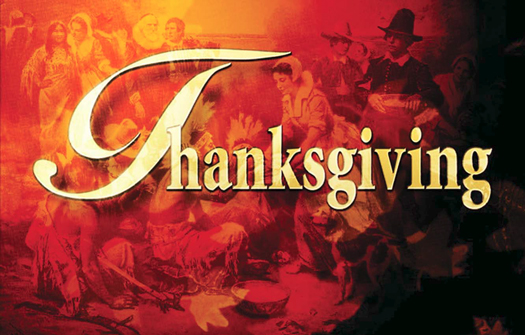The Big Lie, Thanksgiving Day, and Consumer Spending
By Saeed Shabazz -Staff Writer- | Last updated: Nov 20, 2013 - 12:23:01 PMWhat's your opinion on this article?

|
(FinalCall.com) - Americans celebrate Thanksgiving Day on the fourth Thursday of November largely because of successful lobbying by Fred Lazarus, Jr., the Jewish American founder of the Ohio-based Federated Department Stores in 1939.
Mr. Lazarus convinced then-President Franklin D. Roosevelt to issue a national proclamation and in 1941 the U.S. Congress passed a law that ensured Thanksgiving Day would be celebrated no later than Nov. 28.
According to ATouchofBusiness.com, merchants wanted a longer period to sell goods so pushing Thanksgiving Day a week earlier expanded the shopping season.

Hundreds of people stand in line awaing the sales in major stores on Black Friday. Photo:mgnonline
|
“That’s pure propaganda, a mythology needed to manage and protect threats against the power of capitalism,” Dr. Jared Ball, professor of media studies at Morgan State University explained to The Final Call.
The myths of the first Thanksgiving, the birth of baby Jesus on Christmas Day and the Easter celebration of Christ’s crucifixion and subsequent rise keep Americans focused on consumerism, he said.
We are more propagandized as a society now than at any time in the history of America, added Dr. Ball. “It is not an accident that fewer people are controlling most of the media, it is to manipulate us—all encompassing—an entire environment that surrounds us in the process to keep us buying things,” he said. “We are all susceptible to this mythology.”
“Thanksgiving Day remains the most treasured holiday in the United States. Work comes to a halt, families gather, eat turkey, and count their blessings,” said William Loren Katz, author and historian. He explained to The Final Call via e-mail that the first evidence of “political spin” on the 1621 gathering came from governor of Massachusetts William Bradford when he proclaimed a day of thanksgiving.
It was not a tribute to the Wampanoag nation that saved the 149 Pilgrims from starvation “but to his fellow Pilgrims and their bearded White God,” Mr. Katz observed. “Christians had staved off hunger through their devotion, courage and resourcefulness was his spin.”
Gov. Bradford’s tale is an early example of “Eurothink”—an arrogant, self-serving lie, Mr. Katz noted. “And to this day this is the message Americans, be they African Americans, European Americans or Native Americans, hear from politicians, ministers and educators,” said the author of “Black Indians: A Hidden Heritage.”
In 1970, the United American Indians of New England (UAINE) organized the first “National Day of Mourning” to counter suppression of the truth. “We fight back on such issues as the racism of the Pilgrim mythology perpetuated in Plymouth, and the U.S. government’s assault on poor people. We protest the use of racist team names and mascots in sports,” said the UAINE.
On Nov. 28, the 44th annual day of Mourning will be commemorated at 12 noon in Coles Hill at Plymouth, Mass. There will be a rally, march and a pot-luck social. On the same day, indigenous people and their supporters will gather on Alcatraz Island in San Francisco, Calif., for an annual “Indigenous Peoples Sunrise Ceremony.”

Retailers anticipate raking in billions from consumers during the holidays. Photo: Mgnonline
|
As tabulated by the 2012 U.S. Census, there were 1.1 million Native American families with a median household income of $35,310, compared to the national norm of $51,371. Census data shows 27.4 percent of Native Americans were without health insurance in 2012 and 29.1 percent lived in poverty.
Agnes Johnson, a New York community activist, said she followed Dr. Martin Luther King’s path by attending the Day of Mourning in the 1990s with her daughter, who was a high school student. Dr. King called for “a radical revolution of values,” she said.
“People came from all around the world. The gathering at Cole’s Hill was very informative and a spiritual time where the victims of imperialism shared history, memories and current actions of genocide and assaults on indigenous cultures, which was especially impactful for my daughter,” said Ms. Johnson in an e-mail.
The day was a powerful tool to shield her daughter from lies, history teachers would try to teach, Ms. Johnson said. “Over and over we heard how the Europeans were not skilled farmers and not expert woodsman. The people they [Pilgrims] referred to as savages showed them generosity and hospitality,” she noted.
“The walk through the town of Plymouth is unforgettable, because when you see the size of ‘Plymouth Rock’—the size of this rock makes the whole myth of the ‘First Thanksgiving’ laughable,” Ms. Johnson added.
Turkey Day and shop ’til you drop
Today the lie of the first Thanksgiving is being used as a back-drop for frenzied spending on “Black Thursday.” Shopping will be pushed in part by the same corporation that pushed for the federal designation of the fourth Thursday in November as Thanksgiving Day.
According to the National Retail Federation stores such as Wal-Mart, Target, Best Buy, Macy’s, Kohl’s, J.C. Penny, K-Mart, Sears and The Gap will open their doors by 6 p.m. on Turkey Day.
Retailers are banking on Thanksgiving Day deals to lure shoppers away from their turkey dinners, said some analysts.
According to a newspaper story in Durham, N.C., Thanksgiving Day sales in that city alone hit $810 million in 2012, up 55 percent from 2011.
Retail analysts say pressure on stores to open early is greater this year because there are 6 fewer shopping days before Christmas. Brick and mortar stores are also competing for consumers who stay home and shop via the Internet.
The American public is up against a collective $40 billion advertising budget, which is “just for the promotion of products and to manipulate our consciousness,” said Dr. Ball.
Last year Wal-Mart employees in 100 cities protested against store openings on Thanksgiving Day to no avail. There have been reports Wal-Mart plans to soften the 2013 Thanksgiving Day blow to its one million workers by offering an extra day’s pay, discount shopping and a holiday meal during shifts.
Playing politics with the Pilgrims
Mr. Katz said the day has served political ends for leaders like President George W. Bush, who flew into Baghdad, Iraq on Thanksgiving Day with a “glazed turkey that was cardboard, a stage prop.”
“During the Civil War, the Lincoln administration made Thanksgiving official in order to bolster sagging morale as casualties climbed to the hundreds of thousands with no victory in sight and desertions mounting each month,” said Mr. Katz.
Other analysts say educators after the Civil War used the story of Pilgrims sitting down with Native Americans in 1621 as a tool to assimilate millions of Eastern European immigrants into American life. The new arrivals were taught to view the Pilgrims as models for their own families.
INSIDE STORIES AND REVIEWS
-
-
About Harriett ... and the Negro Hollywood Road Show
By Rabiah Muhammad, Guest Columnist » Full Story -
Skepticism greets Jay-Z, NFL talk of inspiring change
By Bryan 18X Crawford and Richard B. Muhammad The Final Call Newspaper @TheFinalCall » Full Story -
The painful problem of Black girls and suicide
By Charlene Muhammad -National Correspondent- » Full Story -
Exploitation of Innocence - Report: Perceptions, policies hurting Black girls
By Charlene Muhammad -National Correspondent- » Full Story -
Big Ballin: Big ideas fuel a father’s Big Baller Brand and brash business sense
By Bryan Crawford -Contributing Writer- » Full Story






 Click Here Stay Connected!
Click Here Stay Connected!








